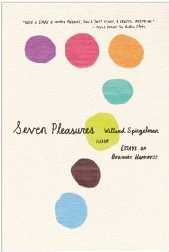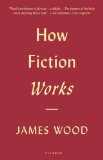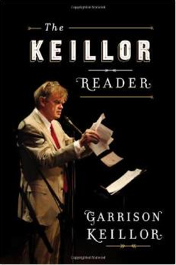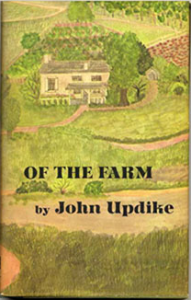 Willard Spiegelman, in “Proust Goes to the Country Club,” an essay published in the Summer 2014 issue of The American Scholar, contemplates remembrances of things past after attending “a largely forgettable class reunion”—with the late John Updike’s help.
Willard Spiegelman, in “Proust Goes to the Country Club,” an essay published in the Summer 2014 issue of The American Scholar, contemplates remembrances of things past after attending “a largely forgettable class reunion”—with the late John Updike’s help.
“As he lay dying of cancer in a Boston hospital,” Spiegelman begins, “John Updike composed a sonnet sequence, ‘Peggy Lutz, Fred Muth 12/13/08’ that ranks with his best work in verse and even prose. Clear-sighted, sober, but witty, unlike many deathbed works, the poems acknowledge feelings of wonder and gratitude. The poet looks at his surround—the equipment, the noise, and the doctors and nurses—and he also takes a backward glance at his early years as a schoolboy in Shillington, Pennsylvania. He thanks his classmates, childhood friends, a mere hundred, because they showed him, in miniature, all the human types he would make use of later on: ‘beauty, / bully, hanger-on, natural, / twin, and fatso.’
“And he continues, more self-consciously, to consider the possibility that ‘we meet our heaven at the start and not the end of life.’ He knew the town; the town knew him and it stayed with him forever, especially after he left it: ‘I had to move / to beautiful New England—it’s triple /deckers, whited churches, unplowed streets—/ to learn how drear and deadly life can be.’ Shillington gave Updike all he needed as an artist, nurturing him as a young man. And like Joyce, who fled Dublin but never truly escaped it, Updike had to get away to realize what he had been given.”
Later in the essay, which requires a login to access, Spiegelman anticipates his 50th high school reunion and writes, “Like Updike, I had always thought long and hard about classmates from early childhood and adolescence. I remembered most of them fondly, even the ones who may have been irksome at the time when I was a know-it-all baby Beatnik, a pesky intellectual who resisted football games, pep rallies, anything that smacked of mindless conformity.”
But, he learns, “not everyone shared my genial fondness for the whole, imagined group of us. I had hoped that some people who loomed large in my memory, the way Updike’s Shillington schoolmates did in his, would take a personal invitation from me as an occasion to demonstrate fellow feeling. Apparently I did not mean as much to them as they did to me. Or at least they didn’t want to meet and greet me at a big party. They maintained sangfroid invisibility. Did the objects of my affections feel the same about me? I’ll never know.”
He concludes, after noting that his reunion “flew by quickly . . . pleasant as it was brief, if nothing special,””Life eventually becomes for everyone ‘drear and deadly,’ as Updike put it, but for some—most? the lucky few?—it offers gratification as well. Looking back becomes itself a source of such pleasure, even as looking forward, as the end of life approaches, becomes the opposite.”
Spiegelman’s most recent book is Seven Pleasures: Essays on Ordinary Happiness.






